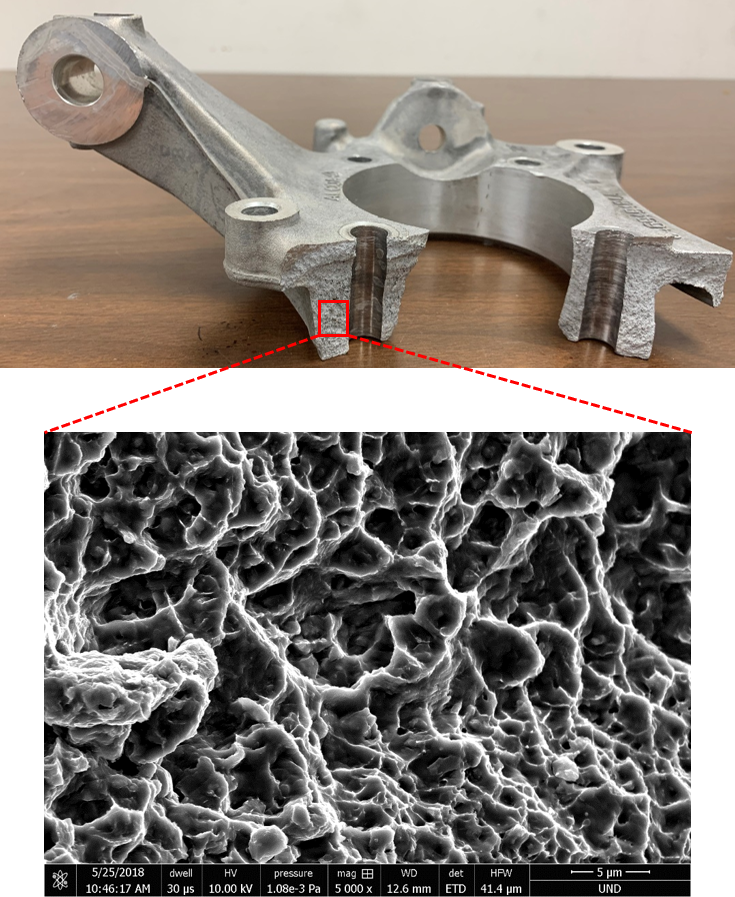Failure, Fracture and Fatigue Laboratory (F3L)
What is failure, fracture and fatigue?
Damage leads to failure and failure leads to fracture. Fracture is a form of failure where the material separates in pieces due to stress, at temperatures below the melting point. Fatigue causes an estimated 90% of all mechanical service failures. Fatigue failures occur under fluctuating stresses that are much lower than the stress required to cause failure during a single application. Fatigue can affect any part or component that moves. Automobiles on roads; aircraft wings and fuselages in the air; ships at sea; nuclear reactors; jet engines; and land-based turbines are all subject to fatigue failures [ASTM International].
The Failure, Fracture, and Fatigue Laboratory (F3L) is a research laboratory in the Department of Mechanical, Industrial, and Manufacturing Engineering (MIME) at The University of Toledo with two major goals:
- To assess failure and fracture, including fatigue, of materials and structures in bulk- and microscale
- To educate engineering leaders in the field
Current research areas
- Uniaxial and multiaxial fatigue of metals and non-metals
- Fatigue of additive manufactured metals (MAM)
- Fatigue in small scales (i.e. indentation fatigue)
- Ultrasonic fatigue to assess very high cycle fatigue (VHCF)
- Non-ambient rotating bending fatigue
Research areas
- Uniaxial and multiaxial fatigue of metals and non-metals
- Fatigue of additive manufactured metals (MAM)
- Fatigue in small scales (i.e. indentation fatigue)
Facilities
Publications
News
Sponsors
- UToledo URFO
- (AFOSR) Department of Defense
- Eaton Corporation
- National Institute of Standards and Technology (NIST)
- SLM Solution
- Lincoln Electric
- Quintus Technologies
History
Contact
North Engineering Room 1037
Email: Meysam.Haghshenas@utoledo.edu
Office phone: 419-530-8241



